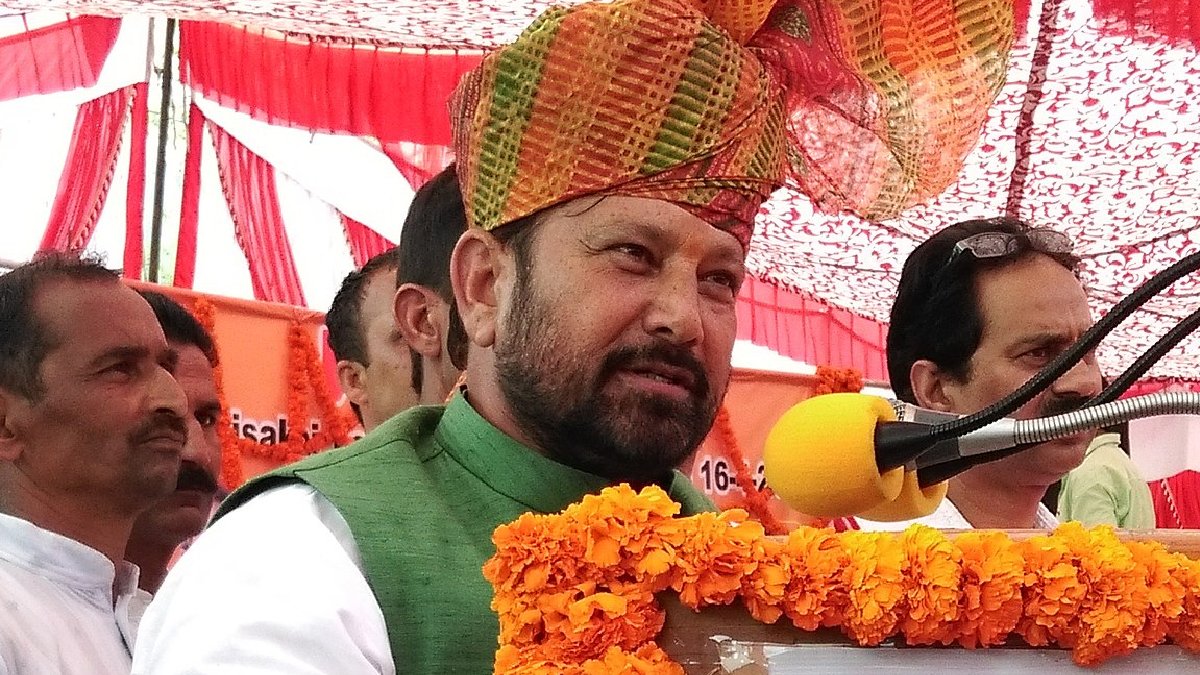
Hanging Guru: Congress acted like a colonial government
The Congress-led UPA government might have felt that its detractors would have an issue less after the 2001 parliament attack convict Afzal Guru was hastily executed in Tihar Jail on the morning of February 9. It was a quickly though-out strategy to establish that the 'secular' Congress was by no means soft on the question of terror, even after its home minister committed a political goof-up by uttering the words 'Hindu terror'.
The Congress's sole aim in the entire episode was how to steal the wind from the BJP's sail and particularly blunt the emerging challenge called Narendra Modi. For it was the same Modi who has mauled the Congress on the question of nationalism/communalism in Gujarat assembly polls in the past, particularly in 2007.

But the Congress decision-makers rushed things without actually taking stock of the situation. It is ironical for they knew what the political consequences of simplifying a complex issue could lead to. But the leadership went ahead to execute the second man inside three months. It was a ham-handed act, to say the least.
A strong public opinion, fuelled by an aggressive and sensationalist media, gave the rulers the impression that the act of execution had full sanction. It was thought that the tilting public sentiments in favour of opposition leaders like Modi even at the national stage could be won only if the state gave an outlet to the prevailing angst and anger among the people. The judiciary's emphasis on "collective conscience" took Guru closer to the gallows even faster.
But for serious observers of politics, executing Afzal Guru never really had the potential to transform the image of either Manmohan Singh or Sonia Gandhi into that of the late iron leader of the party, Indira Gandhi. According to a senior political analyst, it showed that the government was perhaps worried that prolonged delay in taking a decisive action on mercy petitions could see Guru's death sentence being transformed into a life imprisonment. Such an outcome could have spelled more problem for the Congress-led government. The massive protest in Dhaka over a similar situation does not make such apprehension totally baseless.
But was taking the risk worth it? For a common middle-class Indian, New Delhi acted in a manner that only a colonial regime of the past would do, i.e., carrying out a sensitive act in a haste and not caring for the repercussions for it is confident that its police power will be enough to handle the disapproval on ground. Guru's hanging was backed by measures in Jammu and Kashmir that don't conform to democratic standards by any means. Even his grief-stricken family was allegedly put under house arrest by the chief minister of the state, who had slammed the hanging act a few days earlier. The Indian state, which nowadays views Kashmir as a security problem more than a political one, itself opted to politicise a sensitive issue. A statecraft bereft of substance, to say the least.
Misled by surge in tourism?
The Afzal Guru hanging issue revealed how much the Congress-led UPA is disconnected with the reality and equates everything under the sun with a quest to preserve its power. The fact that Kashmir witnessed a surge in its famous tourism industry in the last two years had perhaps given the government the impression that all was well in the state. But now, the border flare-up with Pakistan and the hanging of Guru will reveal the true picture and affect the tourism adversely, putting the livelihood of several people under threat. This is what New Delhi's hurried strategy has caused in reality.
What was Ghulam Nabi Azad doing?
Another factor that also could have contributed to the adverse situation is the role played by former Kashmir chief minister Ghulam Nabi Azad. The man, currently a central minister, has failed to come up with any success in Andhra Pradesh, where he is in charge of the party affairs. Why wasn't he taken into confidence before the party leaders decided a step on handle the sensitive state of Kashmir?
It can be mentioned that Azad had approached Prime Minister Manmohan Singh in October 2006 to intervene to get a presidential pardon for Guru, who was supposed to be hanged on October 20 that year. He had also urged the government to postpone Guru's hanging after the Ramzan for he feared the repercussions. But his party decided to differ from him, particularly after the Opposition lashed out at him.
Did the Congress not speak Azad this time to understand the ground mood thinking he might have repeated what he had said in 2006? On the other hand, did Azad decide to distance himself from the party this time after meeting resistance from party colleagues?
In the end, the Congress managed to satisfy less number of people than it had actually hoped to. Ultra-nationalists on either side of the religious spectrum criticised it; one for putting the Kashmir situation at risk and the other, for delaying justice. The liberal minds, too, did not back the act for it violated the spirit of democracy.


 Click it and Unblock the Notifications
Click it and Unblock the Notifications

































